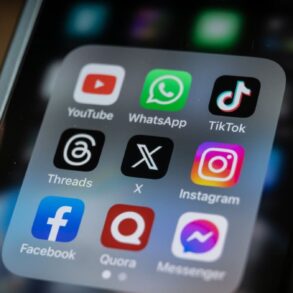
“Boredom: the desire for desires.” — Leo Tolstoy
With the advent of the digital age, more people find themselves hooked to the plentiful offerings of online media and platforms. Indeed, the daily time that internet users spend on social media sites is currently estimated at 2 hours and 20 minutes. While some of this time might be spent messaging friends and family, many people find themselves mindlessly scrolling through their news feeds, watching endless series of TikTok videos, or bingeing on the latest Netflix dramas.
If that describes you, do these digital media ever leave you feeling wanting more?
Do you sometimes feel bored even with endless digital entertainment at your fingertips?
In the above quote about boredom, the famous Russian novelist Tolstoy suggests that boredom isn’t simply a lack of something to do. Instead, boredom likely goes deeper. When someone feels bored, they want something meaningful to engage with, a sense of purpose or passion that motivates them. It’s as though the person is yearning not for any specific goal, but for the presence of a goal itself—something that stirs them and makes them feel alive. So, Tolstoy’s quote captures how boredom is linked to a sense of inner emptiness or aimlessness.
Digital media use, despite its constant offer of something to do, may not always be successful in providing an aim or addressing subjective feelings of emptiness. It might therefore be an unexpected driver of boredom.
Boredom is on the rise
Several studies have shown increasing trends in boredom. People across the world seem to feel more bored than they did 10 years ago. For example, annual surveys of US adolescents, conducted between 2008 and 2017, showed that boredom started to increase in 2011 and that girls have showed larger increases than boys. Similarly, a review of many different boredom studies conducted between 2009 and 2020 in China suggested that boredom increased significantly in college students during that time.
These findings are concerning because boredom may reduce life satisfaction and well-being and potentially even lead to poorer mental health. Boredom might also affect people’s motivation and result in lower effort and achievement.
Is digital media use a cause of boredom?
The reasons for growing levels of boredom are not fully understood. Some possibilities include an increasing lack of social connectedness and family support, which could give rise to feelings of loneliness and boredom. Additionally, a recent academic pre-print article suggests that digital media could be an unexpected driver of boredom for the following reasons.
- Digital media distract. Digital media and devices are known to divert attention. Typical contents include attention-grabbing pictures, videos, or reels. Many users use multiple devices at the same time or switch between different apps at great speed. They skip contents or fast-forward when watching videos, always on the lookout for the most exciting snippets of information. Apps enforce these behaviours through push notifications that alert users and draw their attention, even if they’re engaged in a different activity at the time. This creates a hugely distracting environment, meaning that users rarely get a full, immersive experience. Multi-tasking and a lack of deeper engagement may leave them feeling less satisfied and wanting more.
- Digital media increase expectations for excitement. The fast-paced nature of digital entertainment taps into a natural human tendency for seeking out sensation. Our exposure to online entertainment may intensify a craving for increasingly more exhilarating activities and entertainment. Previous offline hobbies might fade by comparison. For example, watching extreme videos of roof-topping with daredevil stunts on skyscraper ledges may dampen excitement about going to the park for a comparatively boring practice of unimpressive skateboard flips.
- Digital media present meaningless information. The patchwork of posts on social networking sites often presents an incoherent picture. Contents lack clear patterns or a common thread and are often interspersed by unrelated advertisements. As a result, information is trickier to process, take in, and make sense of. The lack of a bigger picture or broader meaning may trigger feelings of aimlessness. Users could end up feeling lost, overwhelmed, empty, or bored.
- Digital media offer too many options. Some people may praise digital entertainment for its wealth of options. On the flipside, the many different alternatives could fuel a fear of missing out. By committing to one particular option (like attending a live virtual event), users may feel they’re making a sacrifice due to missing out on available alternatives. These nagging feelings are likely to make the chosen option less enjoyable, potentially allowing boredom to creep in.
How to battle boredom
As Tolstoy’s opening quote implies, overcoming boredom is about more than just keeping busy. Rather than doing more things, it involves doing more meaningful things and finding a sense of purpose. While digital entertainment might seem like a good way to battle boredom, it surprisingly could have quite the opposite effect. As a result, one strategy for reducing boredom could involve cutting down on digital media use. This is easier said than done. With our heavy reliance on smartphones and computers at work and across all aspects of our fast-paced lives, escaping the constant lure of online entertainment is difficult. Some initial strategies may include the following:
- Turn off nonessential media notifications.
- Use built-in phone features to set time limits for specific apps.
- Explore apps to block distracting websites.
- Ring-fence days or times for offline hobbies.
There is unlikely to be a one-size-fits-all solution in the battle of boredom.
What are your best tips for feeling more engaged?







